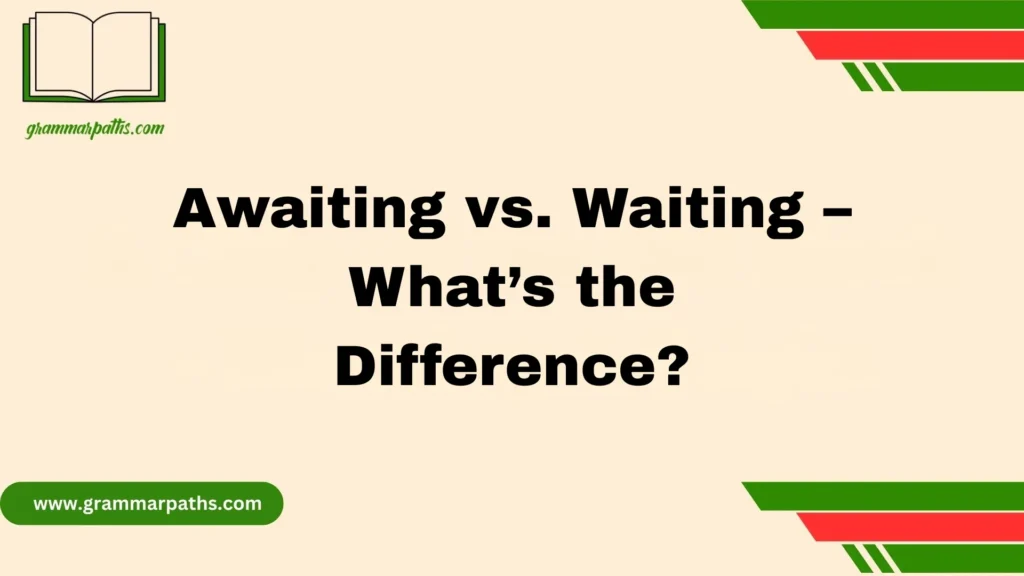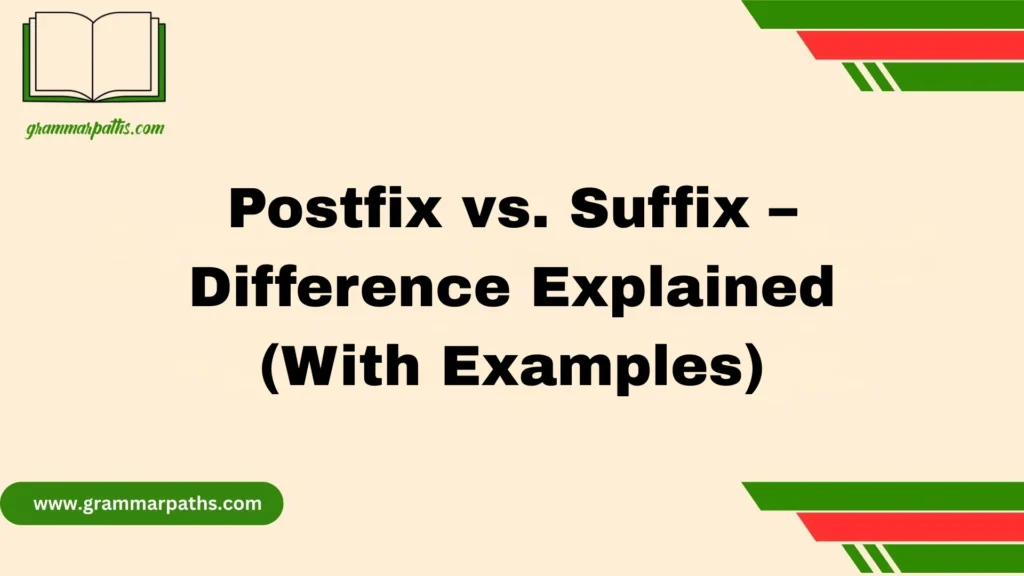Being appreciative of or for something goes beyond simple gratitude—it is about recognizing the value of people, actions, and experiences in our daily lives. When we are appreciative of others, we acknowledge their efforts, kindness, and contributions, no matter how small. On the other hand, being appreciative for opportunities highlights our awareness of the chances life gives us, whether in personal growth, career, or relationships. This phrase is often used in both personal and professional settings, helping us express gratitude, recognition, and respect in the right context.
Understanding how to use “appreciative of or appreciative for” correctly is important in both spoken and written communication. For example, one might say, “I am appreciative of your help,” to highlight recognition of someone’s effort. Alternatively, “I am appreciative for this opportunity,” emphasizes thankfulness for a chance given. Knowing when to use appreciative of and when to use appreciative for improves clarity and politeness in communication.
In today’s fast-paced world, pausing to be thankful, grateful, and appreciative allows us to build stronger connections, improve workplace culture, and nurture personal well-being. Mastering this distinction ensures we express our gratitude in the most genuine and accurate way.
What Does “Appreciative” Really Mean?
The word “appreciative” comes from the verb appreciate, which means “to recognize the value of something” or “to feel gratitude for something.”
At its core, “appreciative” means:
- Showing recognition of value (e.g., She was appreciative of his dedication).
- Expressing gratitude (e.g., I’m appreciative for your help).
Key Distinction from Synonyms
- Grateful: Focuses more on thankfulness.
- Thankful: Similar to grateful, often tied to relief.
- Obliged: Slightly more formal and old-fashioned, common in British English.
Quote to remember:
“Appreciative isn’t just about saying thank you—it’s about recognizing worth.”
This nuance explains why prepositions matter so much with this word.
The Grammar Behind “Appreciative”
In English, many adjectives pair with specific prepositions. These combinations aren’t random—they’re part of natural usage. For example:
- Interested in
- Responsible for
- Afraid of
- Capable of
“Appreciative” follows the same pattern. It typically requires a preposition to connect it smoothly to its object. The two most common are “of” and “for.”
The Correct Form: Appreciative of
The phrase “appreciative of” is the default, grammatically correct, and most widely used. It indicates recognition of the value, effort, or quality of something.
When to Use “Appreciative of”
- Highlighting specific actions or qualities.
- Acknowledging someone’s effort.
- Recognizing worth or contribution.
Examples:
- She was appreciative of the extra hours her team put in.
- I’m appreciative of your honesty.
- The teacher was appreciative of the students’ creativity.
Notice that in each case, the phrase points to a specific quality or effort
Real-Life Uses of “Appreciative of”
“Appreciative of” fits well in different settings. Let’s break it down.
Professional Settings
- Management was appreciative of the staff’s flexibility during the transition.
- Clients are appreciative of timely communication.
Everyday Conversation
- I’m really appreciative of your help with the groceries.
- She was appreciative of the ride home.
Academic or Formal Writing
- Researchers are appreciative of peer contributions to their studies.
- The committee was appreciative of the feedback provided by experts.
Across contexts, “of” sharpens the focus—it points directly to the quality, gesture, or effort being recognized.
The Other Form: Appreciative for
Now let’s look at the trickier phrase: “appreciative for.”
While not the default, it’s not automatically wrong. It surfaces in contexts where someone expresses general gratitude, not recognition of a specific trait.
When It Works
- When the emphasis is on being grateful rather than recognizing qualities.
- More common in spoken English than in formal writing.
Examples:
- I’m appreciative for the support I’ve received this year.
- She felt appreciative for the chance to travel abroad.
Still, linguists and grammar experts agree: “appreciative of” dominates usage in professional, academic, and formal contexts
Why Prepositions Change the Meaning
Prepositions act like tiny gears in language—they shift meaning in subtle but important ways. With “appreciative”:
| Phrase | Meaning | Example |
| Appreciative of | Recognition of specific effort, quality, or action | He was appreciative of her quick response. |
| Appreciative for | General gratitude for a situation or outcome | I’m appreciative for the good weather today. |
Key takeaway: “Of” sharpens, “for” broadens.
Historical and Modern Usage Trends
Language evolves, but patterns leave a trail. Let’s look at how the two phrases appear in usage data.
- Google Books Ngram Viewer shows “appreciative of” far outweighs “appreciative for” from the 1900s to today.
- Academic databases confirm the dominance of “appreciative of” in research papers, news, and formal communication.
- “Appreciative for” appears occasionally in literature and personal writings, but rarely in official documents.
This trend signals that if you want to sound polished and professional, stick with “appreciative of.”
Common Mistakes and Misconceptions
People slip up with “appreciative” for several reasons:
- Interchangeability assumption: Learners assume “of” and “for” are interchangeable.
- Native speaker habits: In casual speech, some speakers use “for” without realizing it’s less standard.
- Language interference: Direct translation from other languages can lead to the wrong preposition.
Mistake Example:
- I’m appreciative for your hard work. (Sounds casual, but not preferred in writing.)
- I’m appreciative of your hard work. (Correct and professional.)
How Context Shapes Clarity
Choosing the right preposition depends on context.
Formal Settings
- Use “appreciative of.”
- Employers, professors, and colleagues expect precise wording.
Informal or Conversational Settings
- “Appreciative for” may slip in naturally, but still sounds less polished.
Written vs. Spoken English
- In writing, “appreciative of” is the safe bet.
- In speech, people often relax the rule, but clarity matters.
Think of it this way: If your words will be read, choose “of.” If they’ll vanish in a quick chat, “for” might slide by.
Case Studies and Examples
Workplace Scenario
An employer writes in an email:
- We are appreciative of your consistent efforts during this project.
- We are appreciative for your consistent efforts during this project.
Personal Interaction
A friend thanks another:
- I’m appreciative of how you always check on me.
- Acceptable (but less standard): I’m appreciative for having a friend like you.
Academic Context
A researcher acknowledges input:
- The team is appreciative of the feedback received during peer review.
These examples highlight how context affects appropriateness.
Quick Reference Guide
Here’s a fast cheat sheet for remembering the difference:
Table: Appreciative of vs. Appreciative for
| Use Case | Correct Preposition | Example |
| Specific qualities or actions | of | She was appreciative of his honesty. |
| General gratitude or blessings | for | I’m appreciative for the opportunity. |
Do’s and Don’ts
- Use “appreciative of” in formal writing.
- Use “appreciative for” sparingly and only for broad gratitude.
- Don’t mix them up in professional contexts.
- Think of “of” = specific, “for” = general.
Conclusion
Being appreciative of or for something is more than correct grammar—it is about expressing gratitude, respect, and recognition in meaningful ways. While “appreciative of” is often used to show acknowledgment of people, actions, or qualities, “appreciative for” emphasizes thankfulness for opportunities, chances, or experiences. Understanding this difference not only helps you communicate more clearly but also strengthens your ability to show thankfulness and appreciation in both personal and professional settings. In the end, being grateful and appreciative enriches relationships, fosters kindness, and creates a positive atmosphere wherever you go.
FAQs
Q1: Is it correct to say “appreciative of” someone?
Yes, use “appreciative of” when recognizing a person’s efforts, qualities, or actions. Example: “I am appreciative of your support.”
Q2: When should I use “appreciative for”?
Use “appreciative for” when you are thankful for an opportunity, gift, or experience. Example: “I am appreciative for the chance to learn.”
Q3: Can “appreciative” replace “grateful”?
Yes, but with nuance. Grateful is broader, while appreciative often highlights recognition of specific efforts or opportunities.
Q4: Is “appreciative” formal or informal?
It is suitable for both. You can use it in formal writing (emails, business communication) and casual conversations.
Q5: What’s the main difference between “thankful” and “appreciative”?
Thankful shows relief or gratitude in general, while appreciative emphasizes recognition and acknowledgment of value.

Grace Marie is the dedicated writer behind GrammarPaths.com, where she shares her passion for English grammar, idioms, and writing mastery. With a strong background in language studies and years of experience helping learners improve their communication skills, Grace creates clear, practical, and engaging content that makes English easy to understand.










